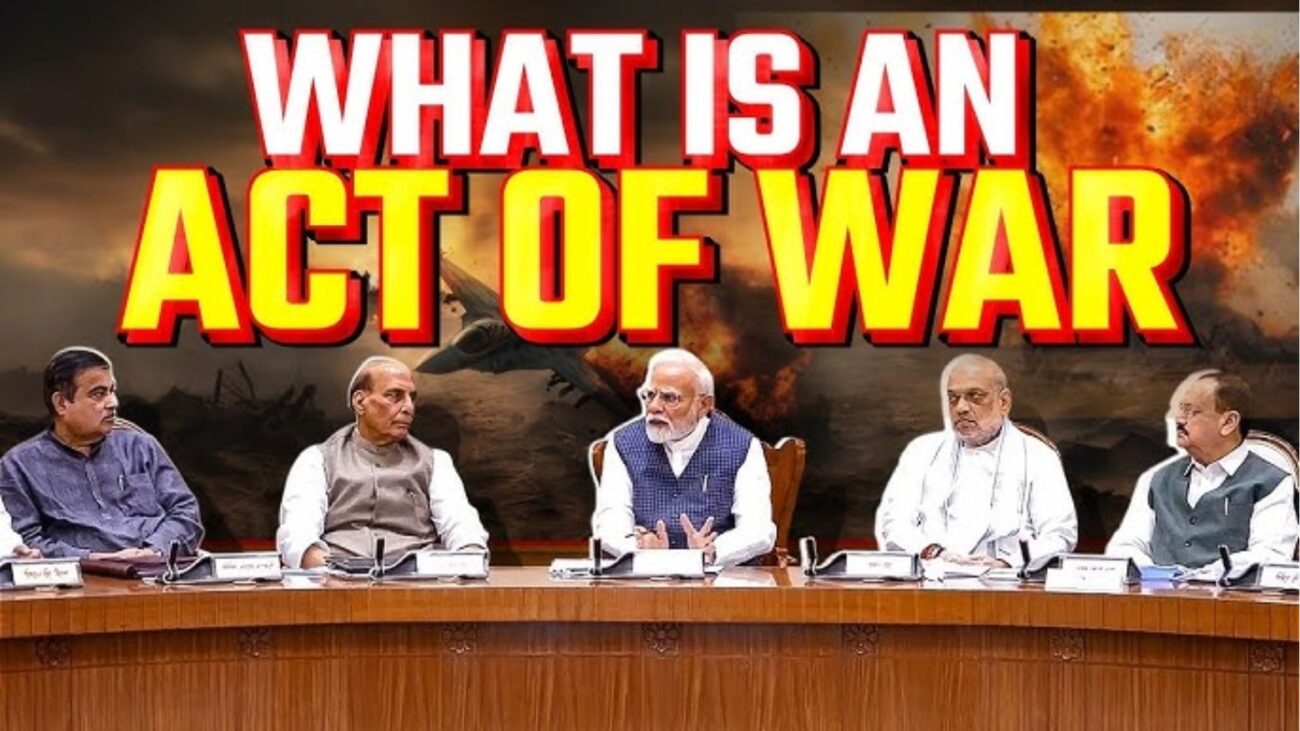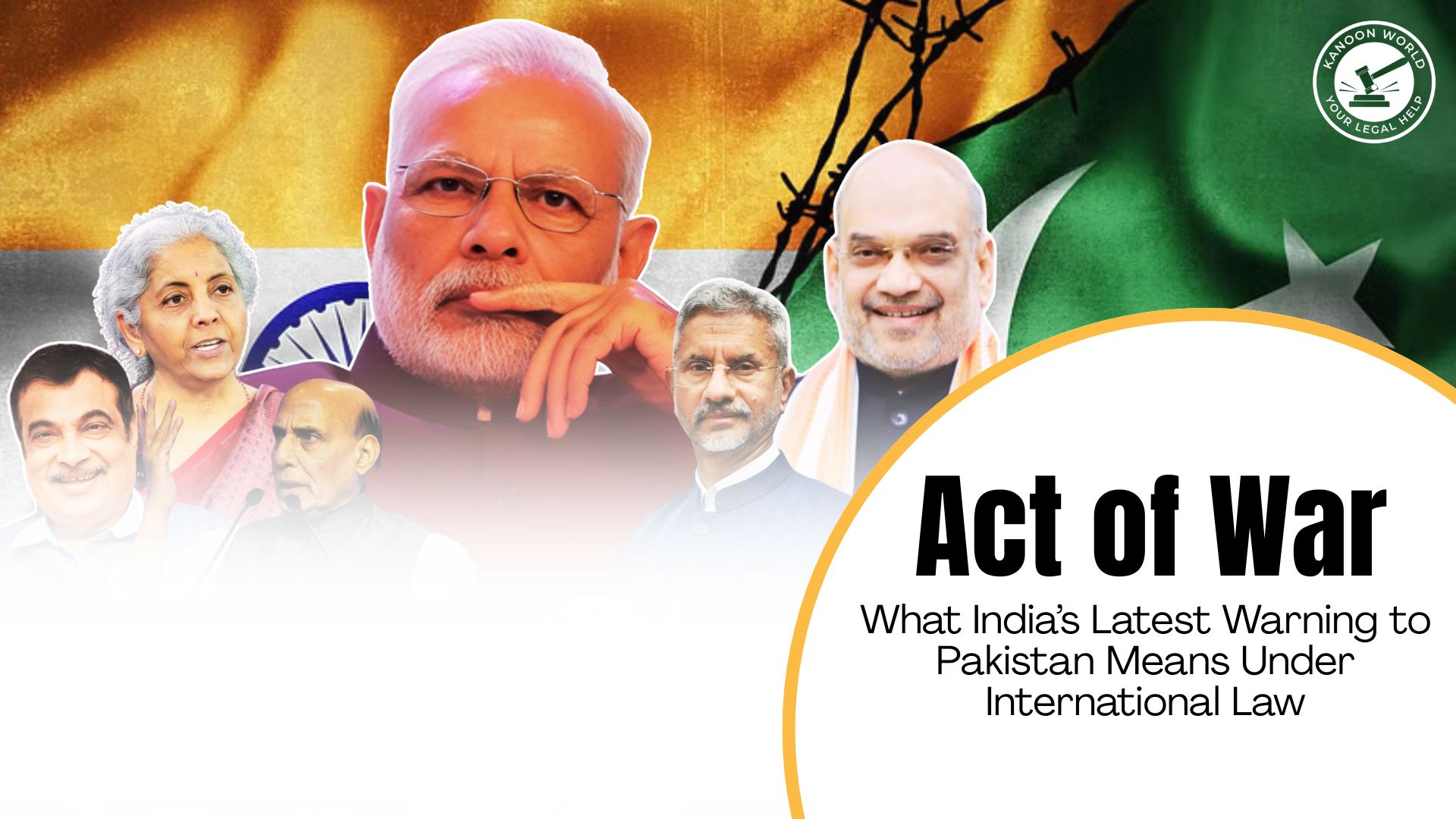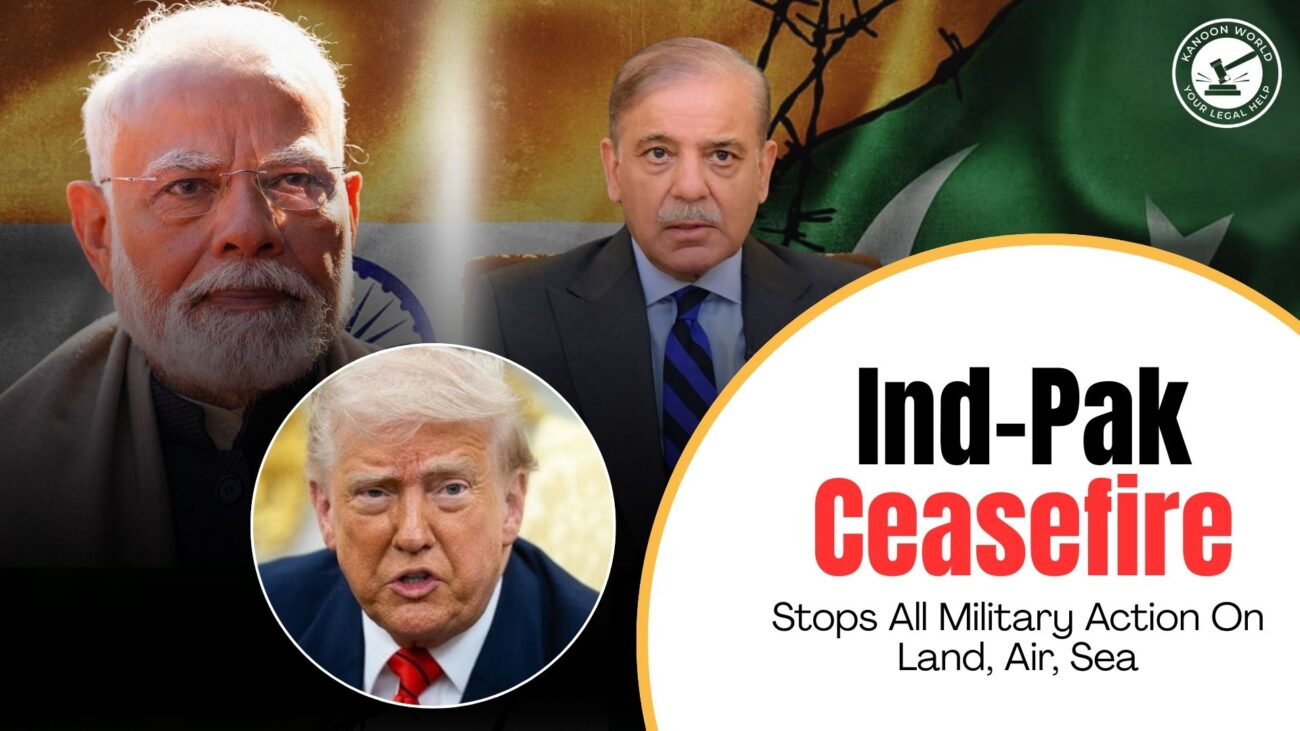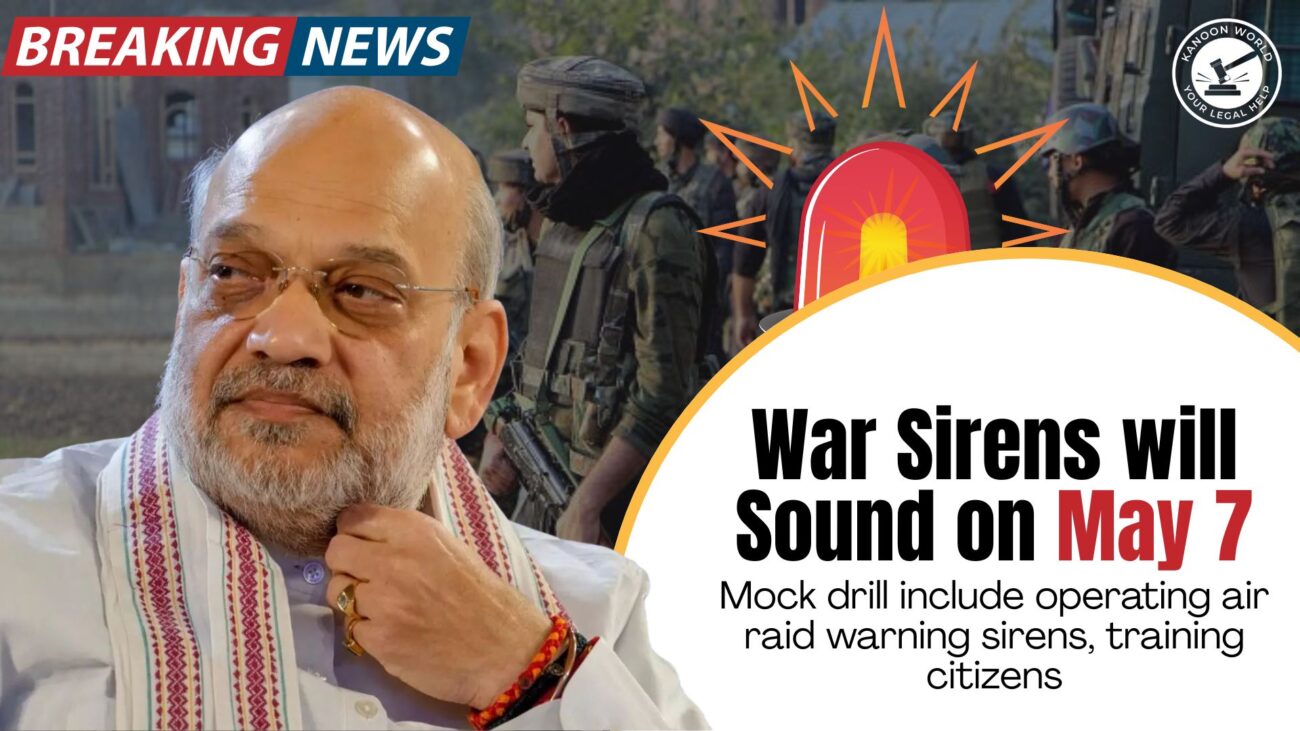New Delhi has decided that any future act of terror will be considered an Act of War against India and will be responded to accordingly, government sources said on Friday.
Tensions between India and Pakistan have once again escalated, but this time, New Delhi has taken a significantly hardened stance. Government sources recently confirmed that any future terrorist attack on Indian soil will now be treated as an Act of War. This development marks a pivotal shift in India’s strategic and diplomatic posture, signaling a far more aggressive response policy to cross-border terrorism.
As drone and missile threats from across the border continue to emerge, India’s Ministry of External Affairs (MEA) has labelled these incidents as “escalatory.” With the introduction of a new standard — treating terrorism as an act of war — questions arise about what this means under international law, and how it may impact the fragile peace between the two nuclear-armed neighbors.
In this blog, we’ll unpack:
- The implications of such a declaration in legal, geopolitical, and strategic contexts
- What constitutes an “Act of War” under international law
- India’s evolving stance on terrorism and military responses

What Is an “Act of War” Under International Law?
In traditional legal terms, an Act of War refers to an action by one sovereign state against another that constitutes armed aggression, including the use of military force. However, the modern international legal system, led by the United Nations Charter, does not offer a precise legal definition of the term “act of war.”
UN Charter and the Use of Force
The two key provisions from the UN Charter relevant here are:
- Article 2(4): Prohibits the threat or use of force against the territorial integrity or political independence of any state.
- Article 51: Permits the use of force in self-defence if an armed attack occurs against a member state, or if such action is authorised by the UN Security Council.
This legal framework suggests that a country has the sovereign right to protect itself if it is attacked, whether by state or non-state actors. Hence, when India classifies a terrorist attack as an “act of war,” it implies that India will treat it as an armed attack justifying the use of force under Article 51.
What About Non-State Actors?
Traditionally, acts of war were associated with actions between recognized sovereign states. But the rise of terrorism and non-state militant groups has challenged this doctrine.
Several legal precedents, including the response to 9/11 by the United States, have shown that states may exercise the right to self-defence against terrorist organizations operating from foreign territory — even if the host state is not directly involved but is unable or unwilling to stop them.
India’s New Doctrine: Terrorism as an Act of War
India’s latest declaration — equating future terrorist acts with an act of war — represents a major shift in its strategic doctrine. Until now, India’s responses to terrorist attacks, even the major ones like 26/11 Mumbai attacks, have largely been diplomatic and measured, despite evidence linking such attacks to Pakistani soil.
However, events like the Uri attack (2016) and Pulwama bombing (2019) began to mark a more assertive military posture, leading to surgical strikes and air strikes in Balakot, respectively. Now, this new doctrine formalizes and publicly commits India to military retaliation in the event of further cross-border terrorism.
Statement from Foreign Secretary Vikram Misri
India’s Foreign Secretary, Vikram Misri, stated:
“Pakistan’s actions have constituted provocation and escalation. In response, India has defended and reacted in a responsible and measured fashion to these provocations and these escalations by the Pakistani side.”
The statement came amid two consecutive days of drone and missile threats reportedly originating from Pakistan, all of which were successfully intercepted by Indian defence systems.
Legal Justification for India’s Stance
India’s declaration is not just political; it also has grounding in international law.
1. Right to Self-Defence (Article 51, UN Charter)
By equating terrorism with an act of war, India invokes Article 51. This allows for military retaliation without waiting for Security Council approval, especially if the threat is imminent or ongoing.
2. State Responsibility for Non-State Actors
If a state harbours, supports, or is unable to control terrorists operating from its soil, it may be held responsible for their actions. This concept of “unable or unwilling” has gained legal recognition post-9/11 and forms the backbone of India’s argument against Pakistan.
3. Customary International Law
Repeated state practice and the opinio juris (belief that an action is legally justified) can lead to the formation of customary international law. India’s consistent diplomatic protests and measured counter-actions have helped build a case for self-defence against terrorism as legitimate under international norms.
What Could Be Considered an Act of War Today?
In today’s context, an act of war may include:
- Armed incursions by military or proxy forces
- Aerial bombings or missile attacks
- Cyber-attacks that cripple critical infrastructure
- Terrorist attacks sponsored or supported by a foreign state
- Drone strikes targeting civilians or defence facilities
India’s new policy places terror attacks — whether executed by militants or drones — in the same category as these conventional military threats.
Geopolitical Implications: A Red Line Has Been Drawn
1. Warning to Pakistan
The statement is a clear red line drawn by New Delhi. It signals to Pakistan that future provocations — even by non-state actors — will no longer be tolerated as isolated incidents, but treated as full-scale breaches of sovereignty warranting retaliation.
2. Regional Stability at Stake
Given that both India and Pakistan are nuclear-armed, escalation can quickly spiral. While India insists its responses are “measured and responsible,” even a limited war or military skirmish could destabilize the region and draw in international stakeholders like China, the U.S., and the UN.
3. Role of Diplomacy and International Forums
India is also likely to push this narrative at global forums, including the UN, G20, and bilateral meetings, to garner support and isolate Pakistan diplomatically. By invoking legal rights under international law, India hopes to shape global opinion in its favour.
Pakistan’s Response So Far
While there hasn’t been a formal statement from Pakistan’s Ministry of Foreign Affairs in response to India’s declaration, media reports indicate that Islamabad has dismissed the missile and drone accusations and has blamed India for escalating tensions. However, India maintains that the evidence, including radar tracking and recovered components, point to cross-border origins.
Could This Lead to Armed Conflict?
While India’s warning is serious, it is also calculated. By setting a legal framework and policy precedent, India seeks to deter future attacks rather than rush into a conflict. However, the ball now lies in Pakistan’s court.
If future terror attacks do occur — especially high-profile ones — India will be under political and legal pressure to act, having publicly declared such incidents as acts of war.
Conclusion: A Legal and Strategic Shift with Global Ramifications
India’s declaration that “Terrorism Equals Act of War” is not just symbolic rhetoric — it carries serious implications in international law and real-world geopolitics. It sets the stage for a new era in India’s counter-terrorism strategy, one that is legally grounded, militarily assertive, and diplomatically proactive.
As the global community watches closely, the hope is that this firm posture acts as a deterrent, not a trigger, for future conflict.
Key Takeaways:
- An Act of War is any hostile action that justifies military response under international law.
- India has declared future terror attacks will be treated as acts of war.
- This policy is rooted in UN Charter Article 51 and evolving interpretations of self-defence.
- The move sends a strong diplomatic signal to Pakistan and the global community.
- Regional stability depends on de-escalation, but India has made its threshold for military action clear.






Loved the clarity it served, eat word felt sharpe that goes directly to all of our patriotic heart !! Keep writing ayush !!
Loved the clarity it served, eat word felt sharpe that goes directly to all of our patriotic heart !! Keep writing ayush !